Dear Colleagues,
On behalf of the Management, I wish you all a happy and prosperous new year.
The year 2015 marked a turning point in my professional experience as I was appointed the Executive Secretary/CEO of NCDMB in May 2015, after a steady career in the private sector spanning various disciplines.
I met a focused and high performing team that had a full grasp of the mandate of the Board. I met structures, systems and processes that represent efficiency in public service. A bit more is however needed to be done in the area of synergy between our various Directorates and Divisions.
With the change in leadership of the Board also came a change in the leadership of our country. We therefore had the added responsibility of ensuring a seamless transition that gave a sense of continuity and confidence to industry stakeholders in relation to government policies.
With your support I was able to quickly settle down and fully integrate into the local content community of practitioners. I thank you all for the warm welcome and efforts in bringing me up to speed within few months into my appointment.
You will recall that during the town hall meeting with staff of the Board in June 2015, I did mention that under my leadership I intend to continue with on-going Capacity Development Initiatives (CDIs), improve on our internal processes, entrench discipline and live our core values.
We have not only continued with the initiatives, but also consolidated and injected new ideas to bring about the desired impact. At every fora and in all our engagements with our principals, our programs have been validated to be on course in bringing about the needed socio-economic benefits to our fellow countrymen and women.
During the past year we were confronted with a major challenge of drop in price of oil. As a consequence, contracts were renegotiated downwards, new projects were not being approved and the only major EPC project (BSWA) is yet to achieve Final Investment Decision (FID). We however rose to the challenge by remaining focused and ensuring that local content is not compromised but viewed as a necessary development imperative.
As we enter 2016 and so long as the price of oil remains low, our challenge will be to device strategies that will accommodate local content and at the same time ensure viability and profitability of new projects. We will continue to engage the IOC’s and partner with them in this regard.
The Board will continue implementation of its Capacity Development Initiatives (CDIs), to create a robust local supply chain that will meet the human and material requirements of the industry within acceptable cost, schedule and without compromising safety, environment and quality.
Our priorities for 2016 are herein articulated
Manufacturing and infrastructure development: We are implementing several initiatives to domicile manufacturing activities, to achieve in-country value addition.
1. Pipemill Scheme: We achieved growth in local Pipemill manufacturing from 100,000Mt/annum in 2010 to 270,000Mt/annum today. Our effort to develop Polaku Pipemill and the efforts of 3rd party investors will be aggressively pursued in 2016, to achieve 600,000Mt/annum local capacity by 2017 (compared to annual demand estimate of 800,000Mt/annum).
2. Nigeria Oil and Gas Park Scheme (NOGaPS): We are establishing oil and gas parks to support service providers interested in manufacturing activities. We have acquired suitable land in three (3) states- Imo, Bayelsa and Cross River states; and have commenced training of SMEs for the scheme. We will commence physical construction within 2016, after conclusion of ongoing EIA studies. When fully established, the oil and gas parks will serve as hubs for equipment manufacturing and services, community entrepreneurs will be engaged and fully integrated into the oil and gas supply chain while thousands of jobs will be created directly and indirectly.
3. Liquefied Petroleum Gas (LPG) Cylinder Manufacturing Initiative: We are promoting the local manufacture of LPG cylinders in response to the policy thrust of Government to encourage use of cooking gas. We have identified prospective investors; and in partnership with Bank of Industry (BOI), we will provide funding support to these investors. Our target is to increase local manufacturing capacity from 400,000 unitstoday to 2 million units per annum by 2017
Human Capital & Technology Development: Our initiatives aim to close skill gaps, create employment opportunities, develop entrepreneurs and domicile training and research activities in-country.
1. Project Based Training: We achieved about 1 million man-hours of project based training in 2015 covering engineering, project management, instrumentation & controls etc. These trainings will continue to be monitored to ensure that candidates derive maximum On the Job training exposure
2. Direct training intervention: During 2015 we trained youths in Geosciences, Oil Spill Management, Artisan skills, machinist and Pipemill Operations. In 2016, our focus will be to find attachment and employment opportunities for the trainees.
3. Youth Empowerment, Employment & Entrepreneurship Program: In our bid to develop young entrepreneurs that will be self-reliant and employers of labour, we launched The Triple E Program in collaboration with Anabel Leadership Academy. We target to train youths in broad entrepreneurial and technical skills and provide them with starter packs to help them set up their businesses. This will help to productively engage our youths and reduce unemployment related pressure on Oil companies, Government and other project promoters
4. Adopt A Faculty (AAFac) program: AAFac is intended to link the academia with the oil and gas industry, through structured learning & knowledge exchange, research & innovation, curriculum development and infrastructure development. The policy framework has been developed and discussed with National Universities Commission (NUC). Implementation of AAFac will commence in 2016
5. ICT Program for secondary schools: 18 secondary schools within oil producing communities have so far benefited from the Board’s capacity development intervention for young talents in secondary schools. We will evaluate the impact of the program so far and expand to cover other disciplines such as mathematics
6. Centers of Excellence:
a. Centers of Excellence (CoE) for Training: PETROFAC/OGTAN have submitted the Industry Training Needs Analysis (TNA) report to the Board. We are now set to implement the pilot phase of CoE, which will involve upgrading short-listed training facilities to the required international standards. The focus areas for the pilot phase are Geosciences, HSE, Instrumentation & controls, Engineering & Project management and sub-sea engineering. This intervention will reduce capital flight associated will specialist trainings & certification.
b. Centers of Excellence for Research and Development: The Board is promoting establishment of R&D Centers of Excellence in 4 institutions as a major step towards domiciling R&D activities and fostering home grown technology development in the oil and gas industry. We will continue collaboration with Imperial College in the development of these centers. We will also issue revised R&D guideline, to regulate R&D activities in the Industry following painstaking review of the guideline by an industry committee.
c. Nigeria Institute of Welding (NIW): The Board is leading an industry effort to upgrade NIW as a national body for certification of welders and welding practice. The framework for transformation of NIW has been developed and the implementation of the transformation program will commence in early 2016. This effort will standardisewelding practice in Nigeria and reduce incidence of poor quality welding
Supplier Development and Funding Support
1. Nigeria Content Development Fund (NCDF): We continued to manage NCDF in line with approved Operating model and financial regulations. During 2015 the Federal Government introduced the Treasury Single Account (TSA) policy which impacted operations of NCDF. A team is currently putting together a proposal on how the NCDF can function under TSA, so that we can have seamless transition from the existing Operating Model to an Operating model that is aligned to the requirements of the TSA.
2. Nigeria Content Consultative Forum (NCCF): We have established 10 sectorial working groups of NCCF, to serve as think tank and advisors to the Board on matters related to Nigerian content implementation. The recommendations of the working groups have been quite useful and we are committed to working with the various sectorial working groups in implementing the recommendations aimed at closing capacity gaps.
Asset Ownership
1. Offshore Rig Acquisition Strategy (ORAS): ORAS was initiated to create opportunity for Nigerians to acquire offshore rigs through phased acquisition. The gains made from implementation of ORAS policy, namely acquisitions by Oando, Shelf drilling and Indigo are being threatened by drastic reduction in rig count (caused by drop in price of oil). We are reviewing the ORAS policy in light of current market realities and will soon come out with a policy framework that will address concerns of Operators and Investors while still maintaining the local content philosophy in utilisation of rigs
2. Marine services sector strategy: Implementation of horizon 1 of the marine sector strategy, which focused on acquisition of marine vesselsby Nigerian companies, has created a new class of indigenous owners of marine vessels. We are now well positioned to start implementing horizon 2 which will focus on construction of marine vessels in Nigerian ship yards. Already we are engaging and seek to secure the buy-in of stakeholders such as NIMASA and the Nigerian Navy. We will commence implementation aggressively within 2016
Looking inwards
Our greatest asset is our Human Resources. The credibility of our Board, the respect we have earned in the international community is because each and every one of you lived our Core Values. We will continue to invest in giving you the best training and development exposure. We will work with relevant agencies to secure waiver for the Board staff to go for essential foreign trainings. Your welfare will continue to be a priority for management. In 2016 we will start implementing Human Resources Management solution and roll out a comprehensive NCDMB condition of service, to entrench a very friendly HR environment.
In return, I expect you all to continue to give your best, making every effort to be professional and transparent in all your dealings with both fellow staff members and our external stakeholders. There will be no room in ourorganisation for those who have a knack for tardiness, insubordination, gossip and eye service.
I intend to make some rotational changes in the management which is aimed at giving an opportunity for those involved to be well rounded in all areas of our mandate. This will of course be done with consideration for competence and job skills.
Our Headquarters Building Project has been awarded; the contractor has moved to site and fully mobilized. We look forward to a befitting 17 storey office complex by Q2 2018.
We are aggressively enhancing our ICT capabilities at the Headquarters and zonal offices and also upgrading the Nigeria Oil and Gas Industry Joint Qualification System (NOGICJQS) platform. These efforts will increase our efficiency level across board and will support our quest to interface effectively with stakeholders through various technology solutions. In 2016 we will leverage ICT in categorization of vendors, processing of tender documents, processing of certificates (CoA, NCEC, EQ, etc.) while our compliance monitoring activities will also be driven by ICT. All these are intended to make the Board more efficient, reduce contract processing time to the 6 months target of HMS (PS) and reduce our cost of Operations.
In line with Government directive that all Biometric platforms should beharmonised, we will approach relevant agencies of Government on modalities for harmonising our EQ Biometrics Data Center and ensure compliance.
At this point I will like to appreciate the entire executives and members of PENGASSAN. Through constructive engagement we resolved a few burning staff issues such as promotion arrears, placements, leave of absence, Collective Bargaining Agreement etc. We are also at the verge of resolving the Pension remittance issues (to secure our retirement). The union has shown undeniable passion for improving the welfare of its members andmanagement will count on the union to sustain its collaborative approach to unionism. This approach will always ensure a win-win situation for us all.
During 2015 we have had to release 22 NNPC secondees at the instance of NNPC. They contributed immensely to where we are today. I thank them once again for their sacrifice and also appreciate the 10 secondees that agreed to stay back and continue working with us to stabilise the Board.
We are all aware of the economic challenges facing our country and the overarching policy of Government to reduce waste. It calls for prudent management of resources and overhaul of our procurement system, to ensure value for money in procurement of goods and services going forward.
Communication of Board activities is a key component of our local content implementation framework. We will launch a monthly business brief to reach out to key stakeholders on our activities. The monthly brief will have online and print versions.
Five years into successful implementation of the NOGICD Act, (with focus on upstream activities), we are now well positioned to expand our reach. In 2016 we will establish our presence in other parts of the country such as the North, the South-East and Lagos. This is in a bid to bring the organisation and its benefits closer to all Nigerians and Nigerian businesses. We also intend to get more involved in enforcing compliance and developing capacity foractivities in the downstream sector.
Nigerian content implementation in the oil and gas sector is a sign post of success in Nigeria and abroad. In Nigeria we served as critical resource in the development of local content policy for the power sector and are currently in discussions with the building industry. In the international arena I have just been appointed into the Global Local Content Council (GLCC) of London, where the Nigerian model will continue to be under focus. During the capacity building workshop for the legislature there was a consensus for local content to extend beyond the oil and gas industry. These recognitions and positions could not have been taken if we were not creating the desired socio-economic impact. We are now role models and cannot afford to slide back. I urge you all to continue to put in your best at all times. Under my management we will continue to have an open door policy and we encourage you all to freely express your constructive concerns and suggestions for the overall growth of the Board.
Finally, I thank the management and entire staff for the support I have received, for all the kind messages of encouragement and the immeasurableguidance in steering the affairs of the Board thus far. I look forward to your continuous support in the years ahead.
Happy New Year and abundant blessings for you and your families.
Mr. Denzil Amagbe Kentebe
Executive Secretary
Discover more from Nigerian Content Development & Monitoring Board
Subscribe to get the latest posts sent to your email.
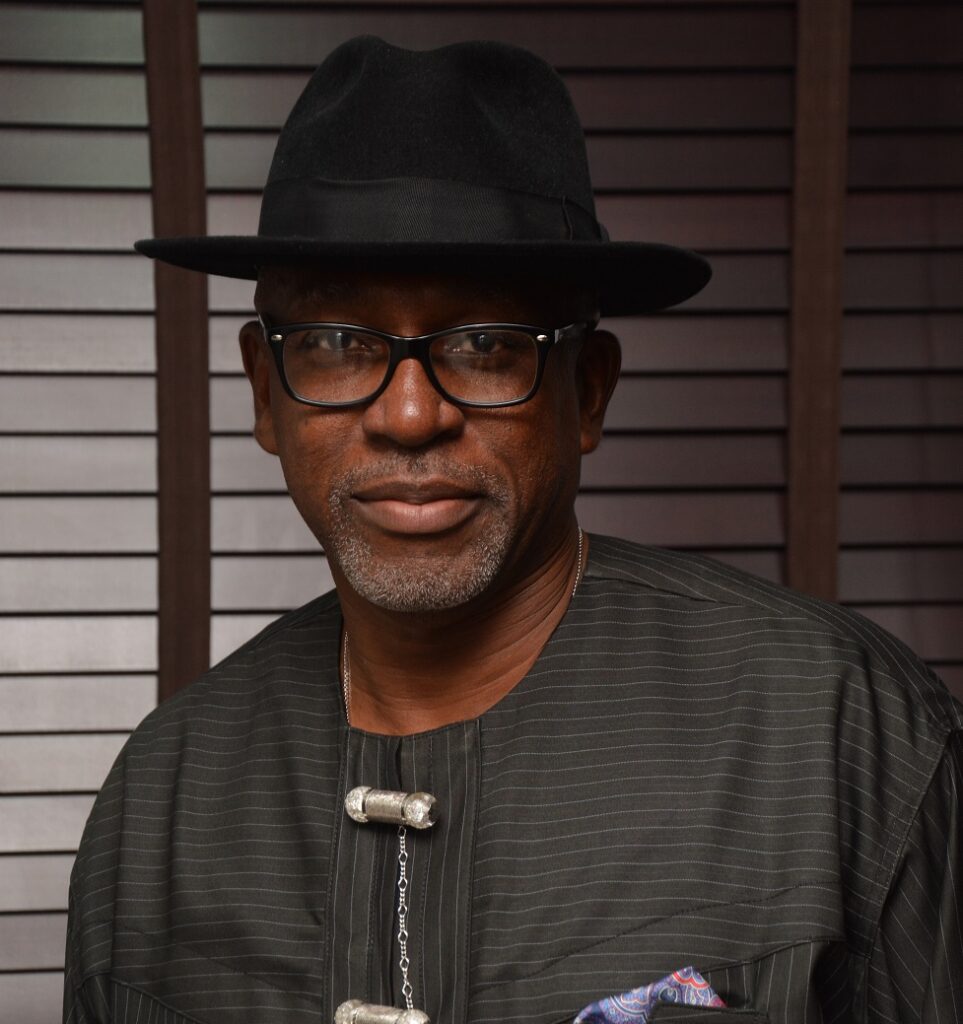

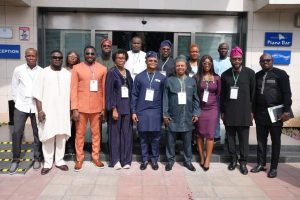
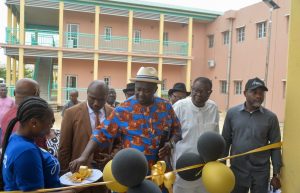
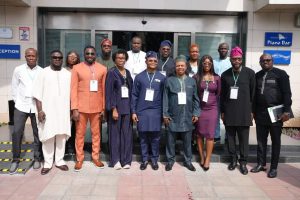
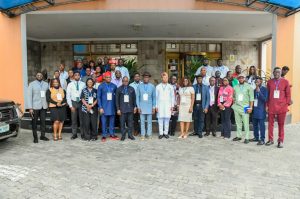
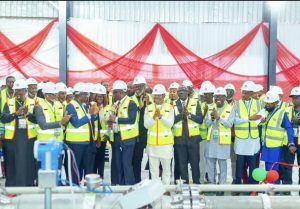
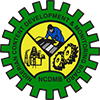




1 Comment
CEO sir I appreciate ur good work to do average Nigerians, please could u please direct me on how to apply to training on ncdmb